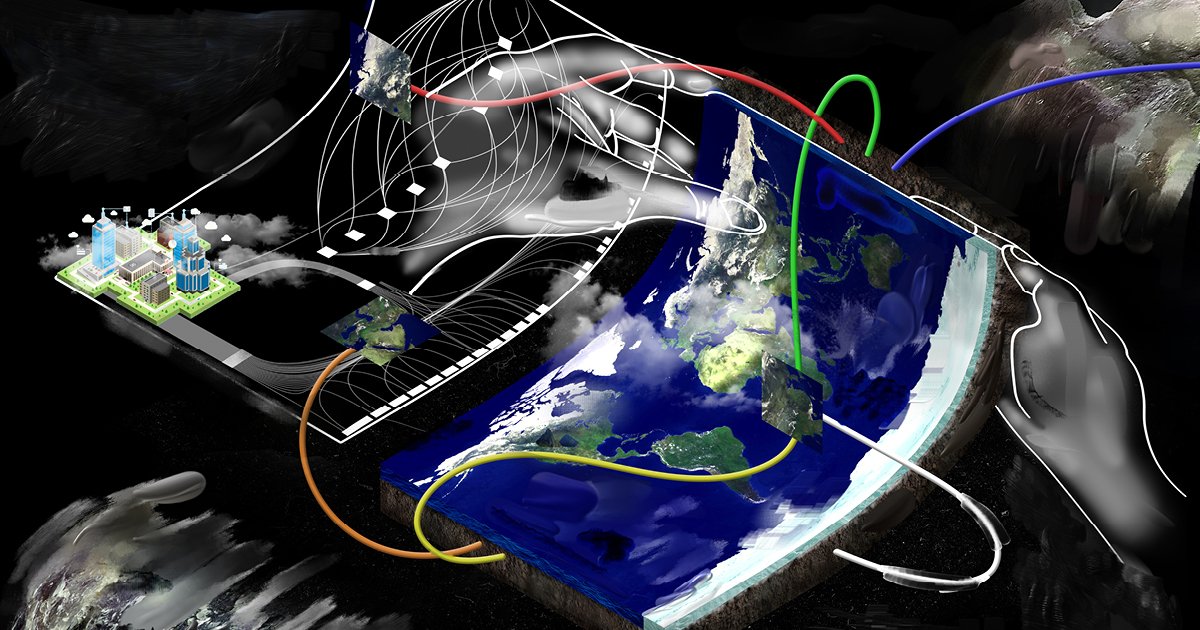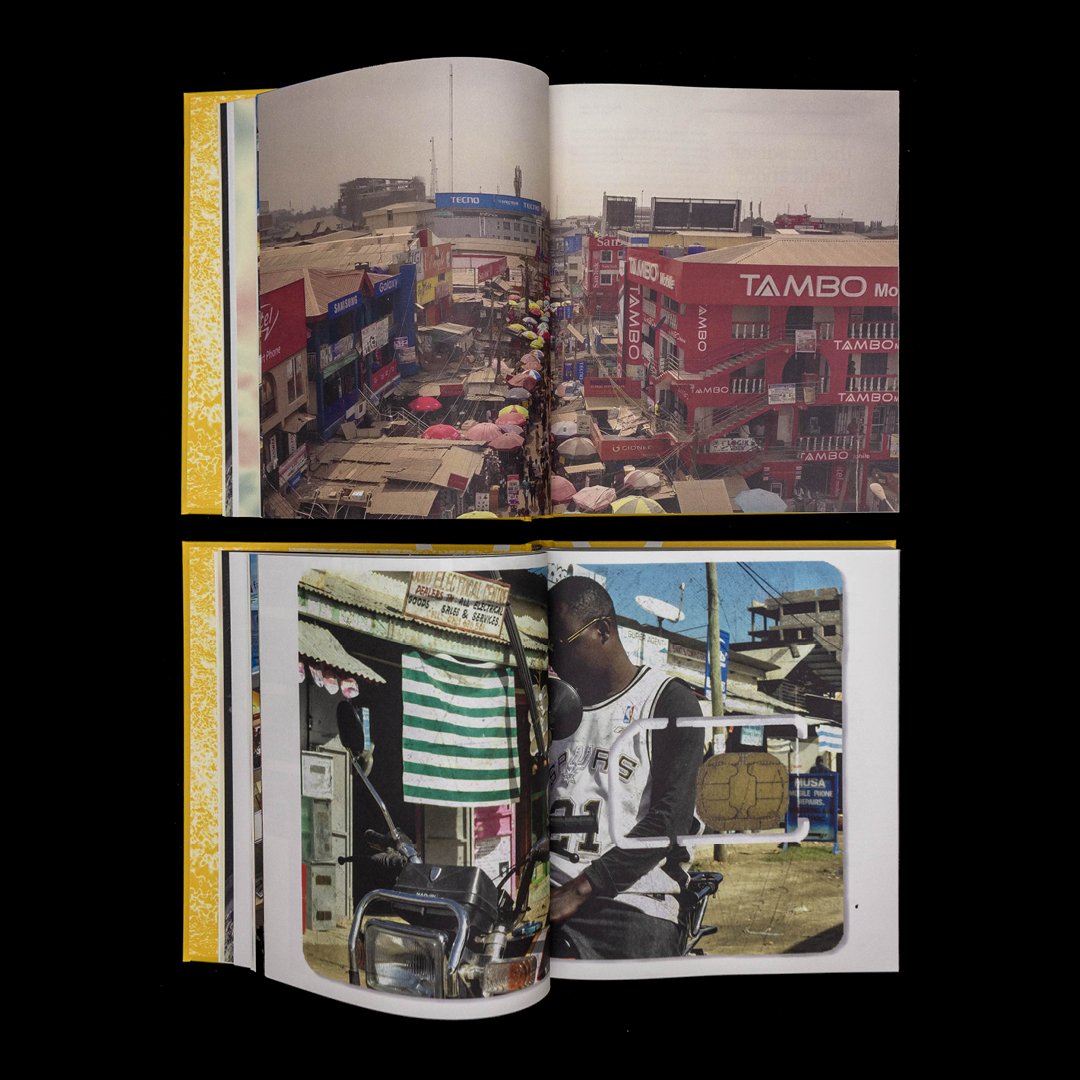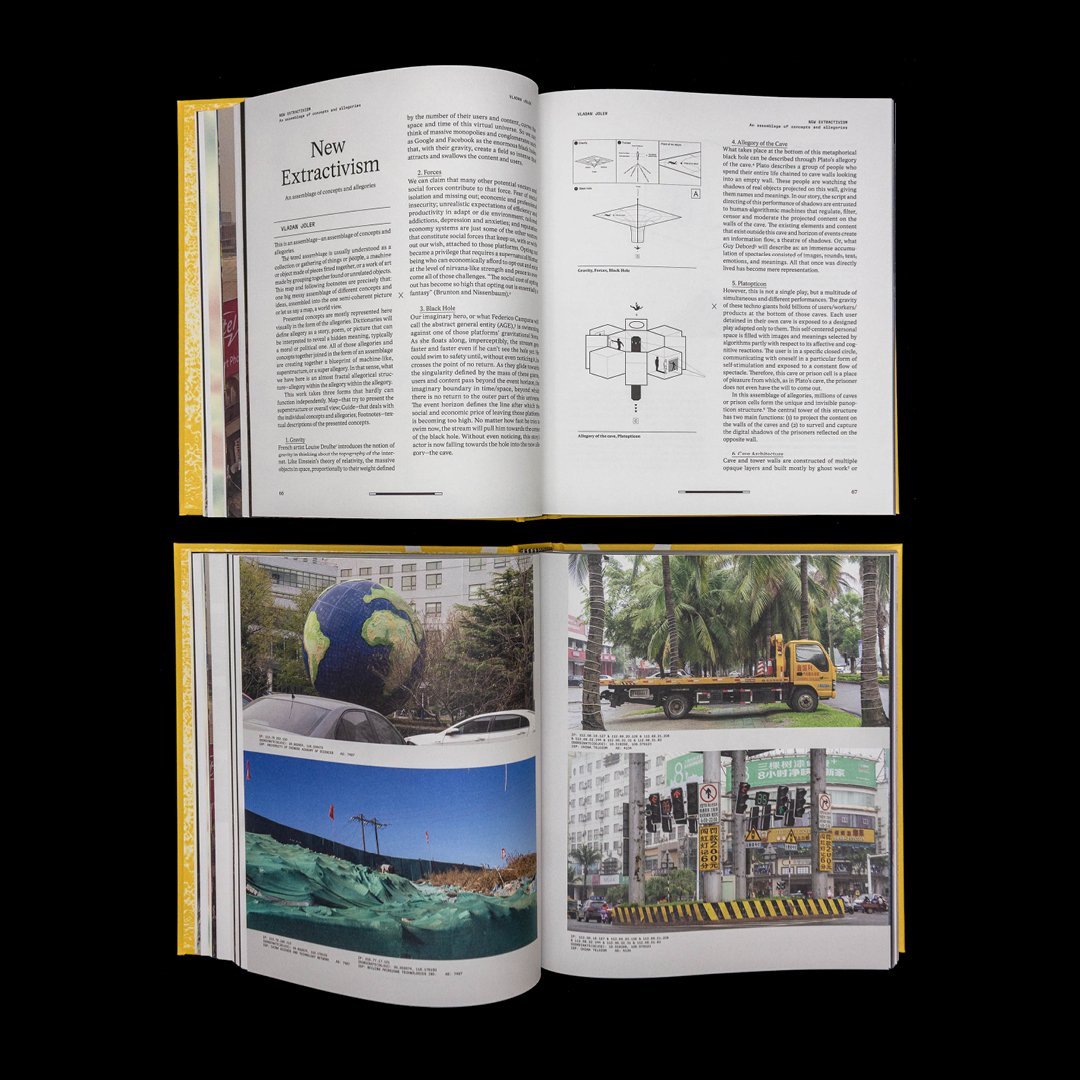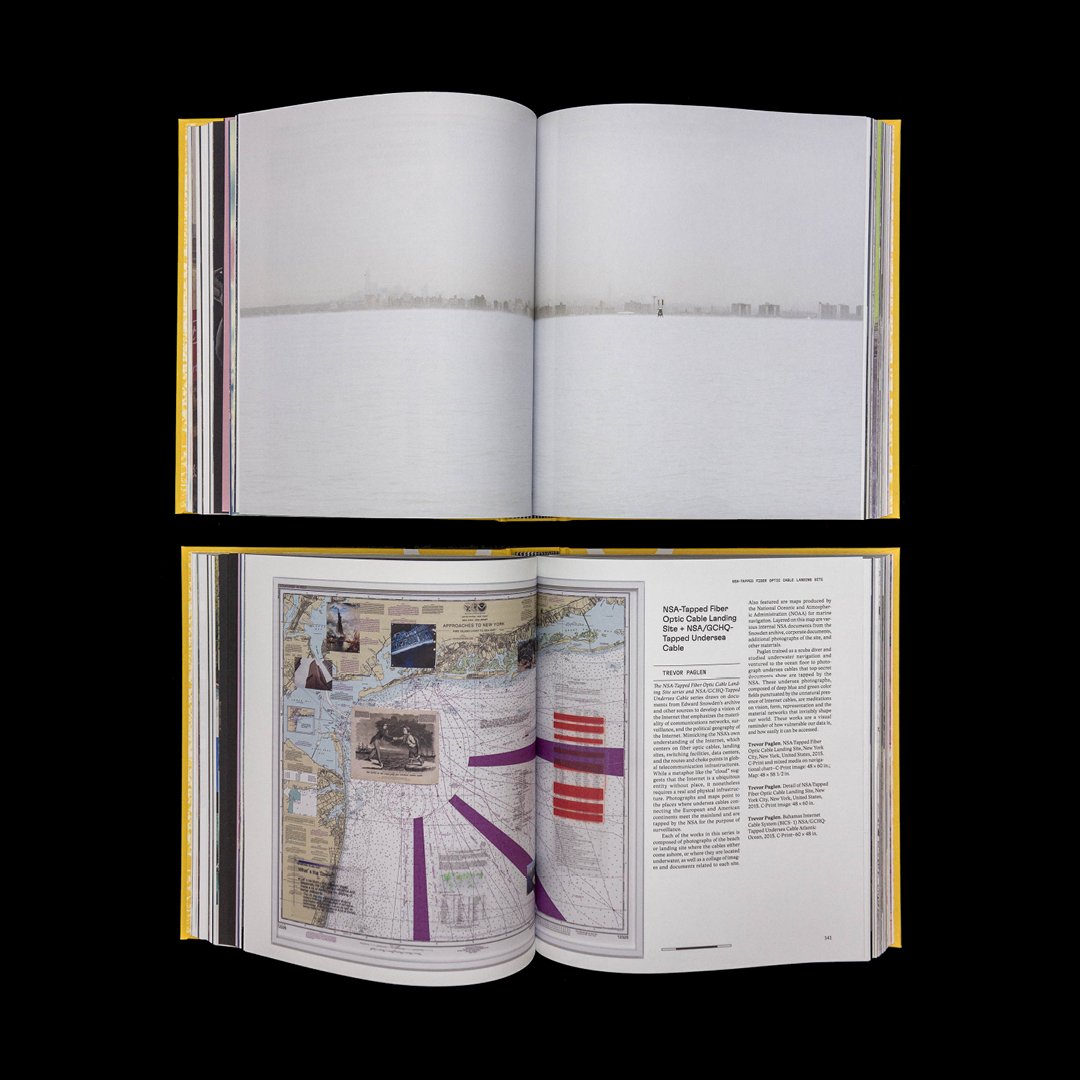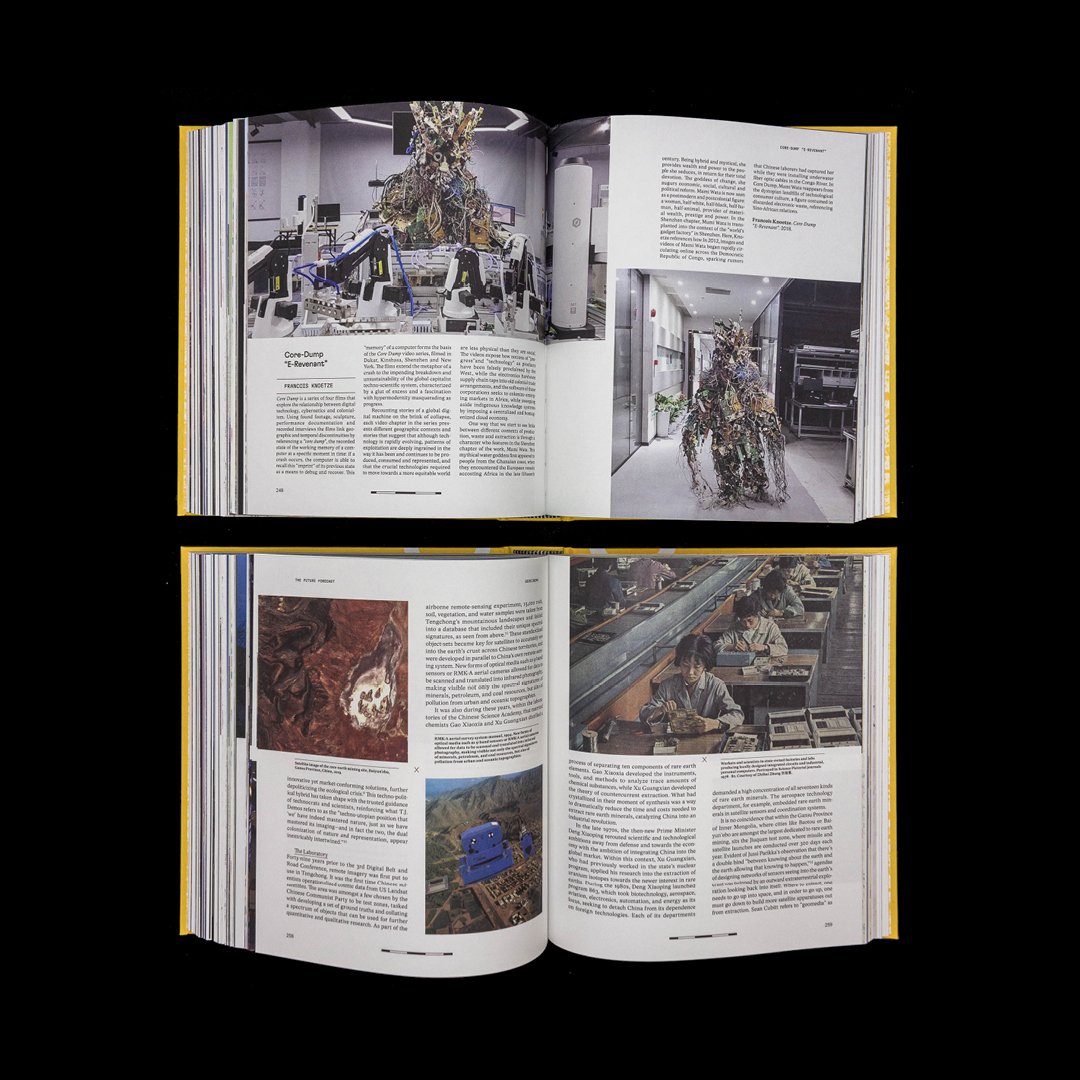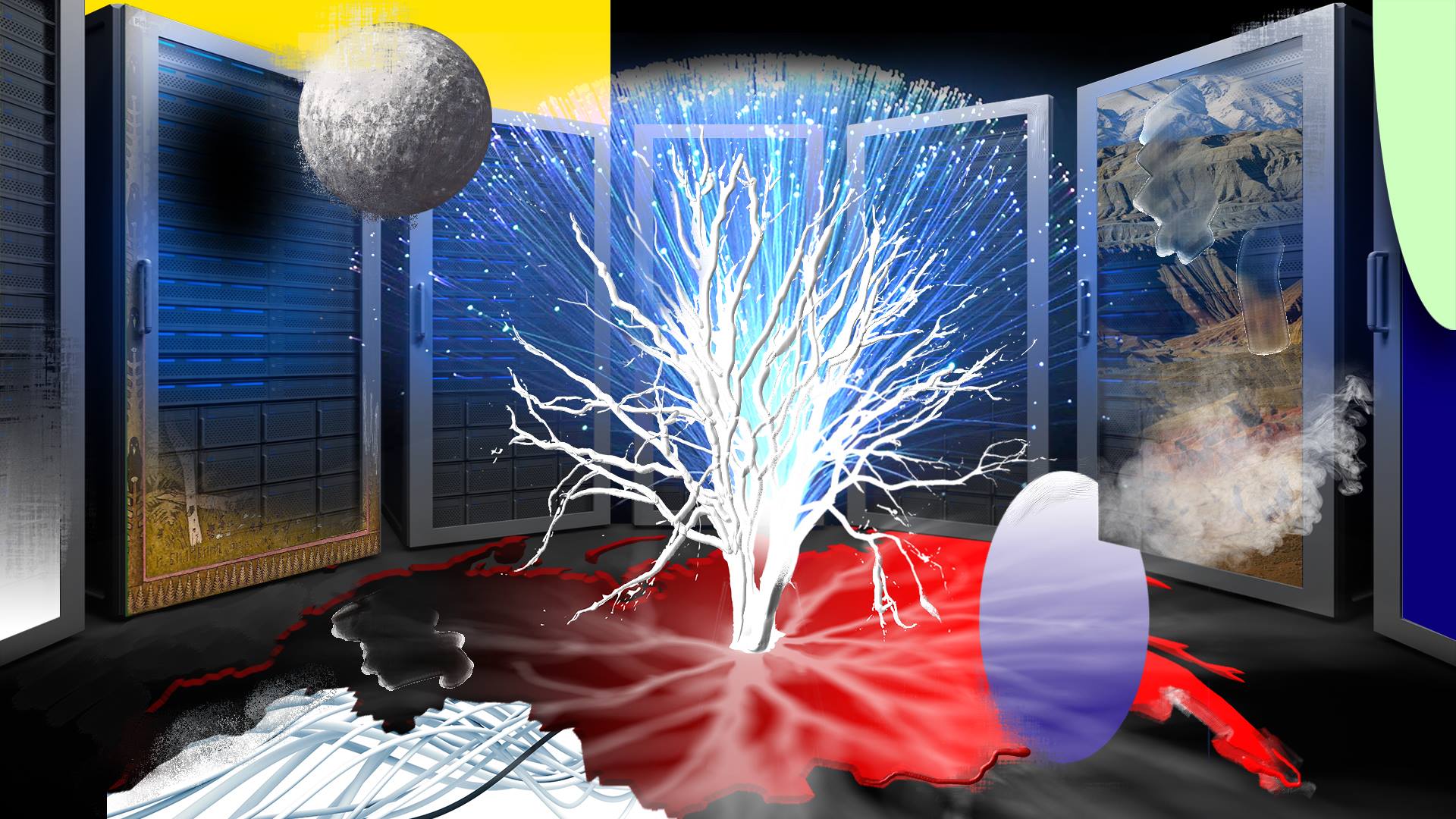VERTICAL ATLAS
VERTICAL ATLAS IS A NEW PUBLICATION ON THE GEOPOLITICS OF DIGITAL TECHNOLOGY
ABOUT THE BOOK
How to navigate the rapidly changing digital geopolitics of the world today? How do we make sense of digital transformation and its many social, political, cultural, and environmental implications at different locations around the world?
Vertical Atlas brings together the insights of a diverse group of internationally renowned artists, scientists and technologists from different backgrounds and places. From an investigation into the lithium mines in the Democratic Republic of Congo to maps of the fiber-optic submarine cables in the Atlantic and the ride-hailing platforms of China.
Vertical Atlas is not a classic atlas that depicts the world in a uniform manner and it is also not a simple collection of traditional maps. It is a tool that enables comparisons, connections and contradictions between different and diverse visions, realities and worlds – through newly commissioned diagrams, interviews, essays and works of art by leading experts from around the world.
Contributors Sophia Al Maria, Heba Y. Amin, Lotte Arndt, Benjamin H. Bratton, Kévin Bray, James Bridle, Ingrid Burrington, Adriana Bustos, Ben Cerveny, Guo Cheng, Chimurenga, Cristina Cochior, Sounak Das, Data Justice Lab (Philippa Metcalfe, Fieke Jansen), Pablo DeSoto, Alexis Destoop, Marjolijn Dijkman, DISNOVATION.ORG, Maarten Vanden Eynde, Cao Fei, Shuang Lu Frost, Maya Indira Ganesh, Pélagie Gbaguidi, GCC Group, Geocinema (Asia Bazdyrieva, Solveig Qu Suess), John Gerrard, Oulimata Gueye, Camille Henrot, Femke Herregraven, Yuk Hui, Sanneke Huisman, Victoria Ivanova, Vladan Joler, Isaac Kariuki, Klaas Kuitenbrouwer, Francois Knoetze, Srinivas Kodali, Bogna Konior, Lukáš Likavčan, Abu Bakarr Mansaray, Svitlana Matviyenko, Emo de Medeiros, Metahaven, Dorine Mokha, Jean Katambayi Mukendi, Musasa, Katja Novitskova, Nanjala Nyabola, Trevor Paglen, Alice Piva, Chen ‘Stanley’ Qiufan, Nii Quaynor, Elia Rediger, Tabita Rezaire, Lucas Rolim, Bassem Saad, Nanjira Sambuli, Georges Senga, Nzilani Simu, Andrej Škufca, Ksenia Tatarchenko, Suzanne Treister, Unknown Fields, Jordi Vallverdú, Richard Vijgen, Sarah Waiswa, Zhan Wang, Kedolwa Waziri, Mi You, Qiu Zhijie, Dan Zhu
Editors Leonardo Dellanoce, Amal Khalaf, Klaas Kuitenbrouwer, Nanjala Nyabola, Renée Roukens, Arthur Steiner and Mi You
Editorial Assistant Hannah Adlide
Design Catalogtree
Published by ArtEZ Press
Access the free digital publication here
Order the book via ArtEZ Press webshop here
Hardcover | 400 pp | English | October 2022 | ISBN 978-94-1444-69-2 | € 39,95 | Also accessible as a free digital publication at verticalatlas.net
Vertical Atlas is a collaboration between Hivos’ Digital Earth and Het Nieuwe Instituut. The fellowship makes up the Experimentation and Learning component of Hivos’ program Resource of Open Minds (R.O.O.M.). It supports artists and critical content producers around the world who strive for openness and social change.
Supported by Sida, Creative Industries Fund NL, New Silk Roads, City of Rotterdam
BACKGROUND
Navigating techno-political realities
Navigating the technological realities we live in has become increasingly difficult. Old cultural, economic and political structures are now mixed, overlayed, infiltrated, enhanced and undermined by a set of new technological fixtures. The computer in the palm of your hand is the entry point to an accidental planetary structure linking lithium mines in Chile to offshore data servers in Russia, to fibre-optic submarine cables in the Atlantic to freeports in Singapore, to corporate-owned satellites in orbit, to a swelling quantity of IP addresses and teraflops of data.
Current navigation tools cannot account for new folded, fractal borders created in digital space and that materialise in cobalt mines in Congo, owned by Chinese state run companies, or in digital interfaces intended to discourage immigration. Cities as well as states and other organisations are becoming increasingly non-local digital platforms, while cloud platforms have taken over some traditional government roles such as identification and cartography. If we want to use maps as wayfinding tools or navigational aids, then we need other kinds of mappings to guide us through these new formations in hybrid spaces.
Other cartographies
Cartography has for centuries been a tool in the service of existing power structures. It helped organise the colonial project of Western powers, and in turn reflected and codified its effects. Current corporate-run mapping systems such as Google Maps or Bing are made to serve the needs of global and local market powers, and in doing so reflect once again, a singular, implicitly normalised perspective that has inherited traits of the colonial project.
In this context, Vertical Atlas proposes a multifocal as well as multivocal approach, one which prevents one standardised perspective informing the depictions of the world. Rather, the project adopts different perspectives and techniques in order to acknowledge realities from different positioned cultural, political, biological, machinic and other embodiments.
Geozones
During the 2018-2019 Vertical Atlas Research Labs five geozones were explored and re-mapped, focusing on the technological and political borders, connections and frictions within them, and looking at the different ways digital technologies function culturally.
Geozones are a trans-continental regions that defy common cartographical logics. They are characterised by certain techno-political arrangements and their related set of frictions and fractures among political, economic and algorithmic sovereignties. The project invited prominent voices in policy making, law, art, design and technology to develop new perspectives on global and regional techno-politics. The content produced and documented from these events is available in this web magazine.
Backgrounds
Mappings in Vertical Atlas together deploy a wide set of coordinates representing spatial, temporal, qualitative, aesthetic, political, material technological dimensions of the issues at stake. In his book The Stack, Benjamin Bratton proposes a model that helps understand the global digital sphere through the metaphor of a platform with six functional layers. Yuk Hui in The Question Concerning Technology in China, develops the notion of cosmotechnics, exploring the cultural functioning of technology through other metaphysical lenses than the universalistic western take.
These concepts, among others, serve as reference frames for the Vertical Atlas project. All mapping contributions are led by people who have direct, lived experience with situated techno-political architectures.
PAST EVENTS
CHINA.AI
05/12/2019
The last edition of Vertical Atlas looks at the most competitive domain in global technology - the development of AI, that holds the key, as many believe, to economic, political and technological dominance for the parties managing to wield its power. China stands at the forefront of these developments, in direct competition with various states and tech companies, and is developing a specific Chinese branch of manmade intelligence (as the exact English translation of the mandarin phrase for AI would be) based on the unique techno-political circumstances in the Chinese geozone >>
FUTURES.GCC
19/09/2019
The fourth edition of Vertical Atlas events, Futures.gcc, focusses on the Arab states of the Persian Gulf. Positioning themselves as competing digital, corporate service platforms and each branding themselves with their own futuristic architecture, megacities and investment opportunities - they all create and make us question visions of artificial futures >>
DIGITAL HISTORIES IN AFRICA
13/04/2019
“[...] now billions of Earthlings carry little bits of Africa around with them in their pockets” - Benjamin Bratton. When talking about technology and its cultural impact, the American-led internet and Silicon Valley are always taken as the global technological standard. This disregards important parallel histories of technological development in different regions across the world, that are shaping the future of digital technologies. From ancient divination systems to contemporary science parks, African cultures have been pioneering and producing algorithmic thinking through arts and crafts for centuries already >>
NETWORKS.AFRICA
11/04/2019
Lately the African continent has been the backdrop for a fierce competition between Chinese and American cloud platforms and hardware giants in pursuit of the most rapidly growing global user-base. This Vertical Atlas event was focused on the growing African technological future, discussing a wide variety of Afrotech cultures that are forming, rooted in the old knowledge networks and pre-colonial algorithmic thinking >>
FROM MALEVICH TO TELEGRAM
02/12/2018
During From Malevich to Telegram Vertical Atlas looked into the cultural, artistic, philosophical and technological traditions that shaped the current interface of the Russian stack >>
INFOCOSM.RU
29/11/2018
Since the early 2000s, a new sovereign model has started to surface from the supposedly free space of the Internet: cloud platforms such as Google, Amazon, Facebook and Apple (GAFA). Over the years, it has become clear that these platforms represent not only a new corporate model, but also a political one that claims sovereignty over cyber and material space through its infrastructure and algorithms >>
